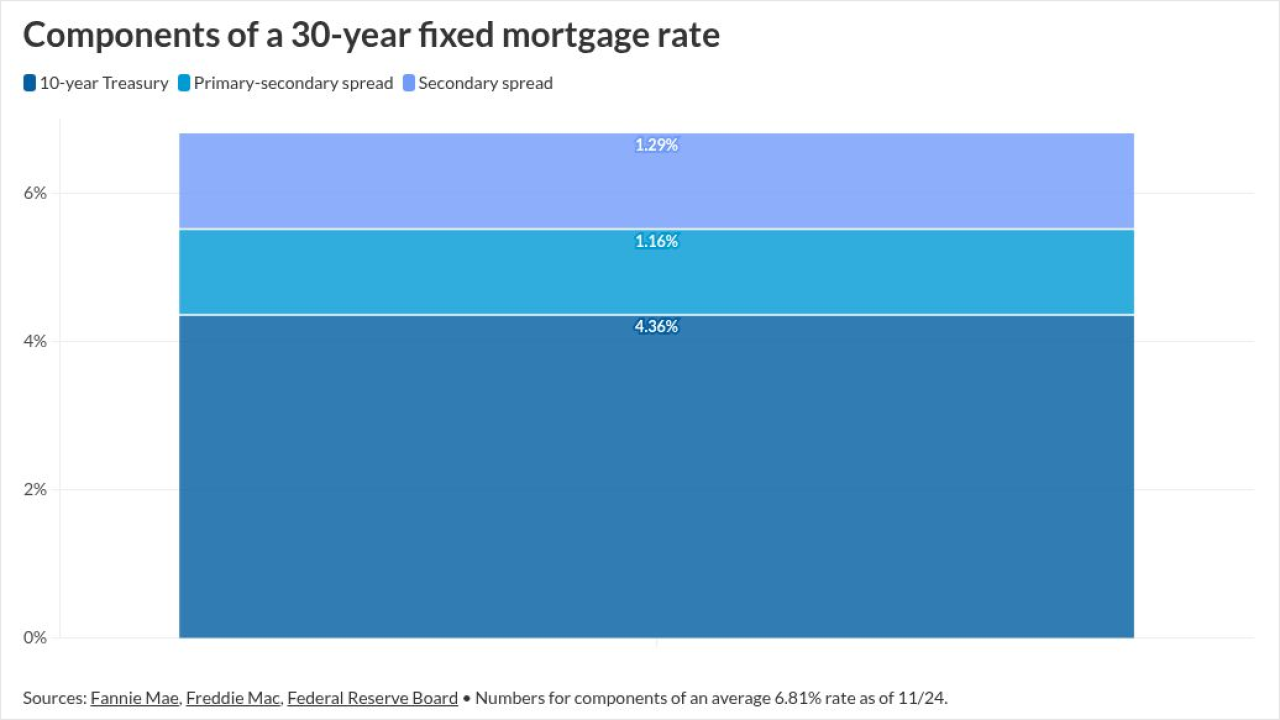Securitization pros are guardedly optimistic about the Trump Administration’s impact on the industry, even if no one expects to see a rollback of regulations imposed by the Dodd-Frank Act in the immediate future.
In fact, panelists spent much of an early session of the Structured Finance Industry Group’s annual conference debating the new administration’s relative priorities, which in addition to loosening financial regulation including tax reform and healthcare reform, not to mention reducing the footprint of Fannie Mae and Freddie Mac in the housing finance market.
The administration has come out quite aggressively with executive orders that echo the agenda of the Republican Party, such as scaling back the Consumer Financial Protection Bureau and the Volcker Rule, and altering the operations of the Federal Reserve. Yet, “what exactly those priorities are and how they will order those priorities” remains in question, said Joshua Wilsusen, an executive director at Morgan Stanley.
And despite Treasury Secretary Steven Mnuchin’s focused on Fannie and Freddie, “how much political capital will put into financial reform is one of the wild cards out there,” he added.
Even if loosening financial regulation is a top priority, it will take time to rewrite rules, according to Ed Hill, senior vice president and public policy executive at Bank of America. Hill noted that there are several heads of regulatory agencies that might need to be replaced before new rules are written, or new enforcement priorities are in place.
“Yes, we think regulatory change is coming,” but it probably won’t occur before the end of the year, he said.
Hill, one of the industry’s chief lobbyists for more than a decade, raised some eyebrows when he suggested that Trump might be willing to ignore international banking accords. “Based on a Trump view of the world, [there is] less interest what international bodies have to say,” said Hill. “You shouldn’t expect that Trump regulators will automatically be on board” with what Basel regulators have to say.
In an electronic poll, audience members provided an overwhelmingly poor assessment of Trump’s overall performance for first 38 days in office: Just over half give him a “D” or an “F”; and another 25% give him C; only 25% gave him A or B.
But respondents had a much better assessment of Trump’s performance as it affects the financial industry: Nearly 20% of respondents gave him an A; over 40% gave him a B; while 40% rated him C or lower.
When asked how far along the Trump administration will be in its deregulatory mission (not defined) by 2018, more than half responded “about 25% of the way.”
Asked which financial markets would benefit most from deregulation, more than 40% indicated corporate credit and roughly 30% residential mortgages; the remainder was split between commercial mortgages and consumer credit.
Comments at an earlier session underlined the difference in views on Trump’s financial policies and other policies such as immigration. Audience members accused the keynote speaker, former Congressman Joe Scarborough, host of MSNBC’s Morning Joe program, of “normalizing” Trump, instead of condemning him.
One audience member said he had been concerned about flying into the Las Vegas airport Saturday to attend the conference. “I’m a U.S. citizen who has lived his entire life here, and I was scared to go the airport,” he said
“It’s outrageous,” Scarborough told the man in the audience. “I look forward to the day you’re as comfortable walking into the airport as I am.”
A subsequent presentation of the National Association of Hispanic Real Estate Professionals (and hosted by VantageScore) made a not-so-subtle point. NAHREP Chairman Gerardo Ascencio recounted his personal odyssey from Mexican childhood to U.S. entrepreneurship.




